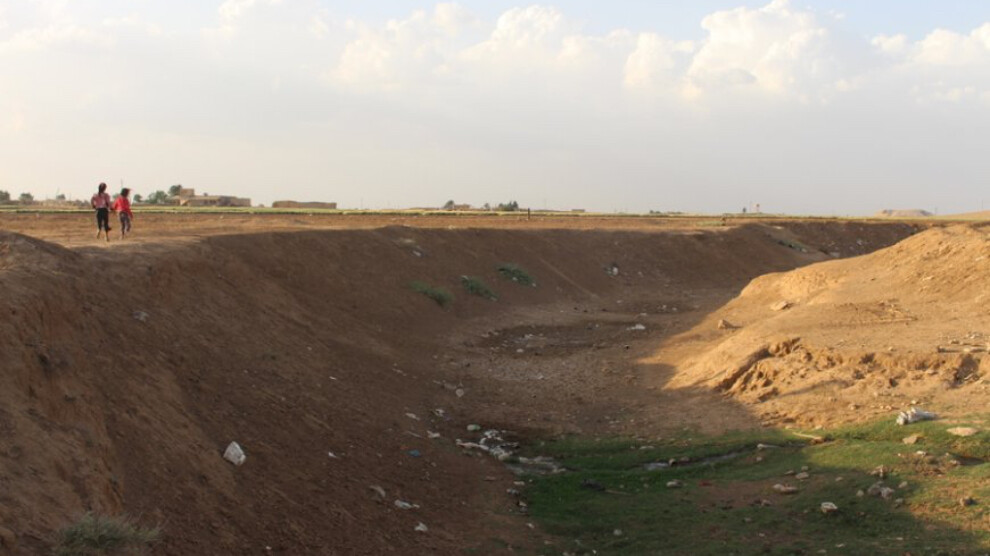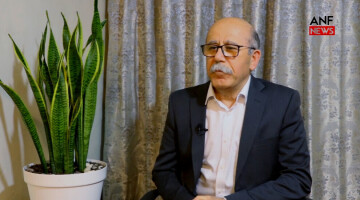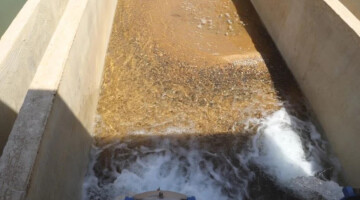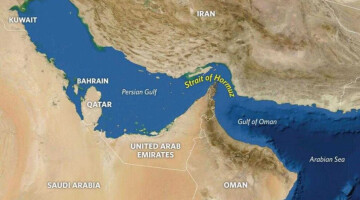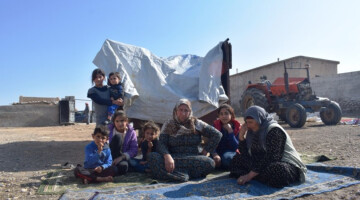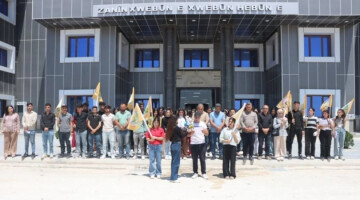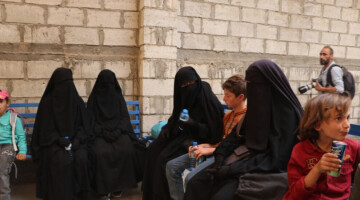The water crisis, becoming increasingly severe in North and East Syria, is severely affecting the people living in many villages in the town of Til Berak in the Cizire Canton. Insufficient rainfall and the drying up of the Ceqceq Stream have led to the depletion of both drinking water and agricultural irrigation sources. The people of the region are calling for urgent measures to be taken in response to the drought.
The village of Batı Simêhan, which is part of Til Berak, and the surrounding villages have been using underground water sources fed by the Ceqceq Stream for years. Thanks to the rains during the winter and spring months, these sources remained usable for extended periods. However, this year's near-absence of rainfall caused the stream to dry up completely. Surface wells ceased to yield water, and underground water levels dropped significantly.
Speaking to ANHA, Bessam El-Abdullah from Simêhan village emphasized that drought directly affected daily life. “We experienced severe drought this year due to very low rainfall and the effects of climate change. We are struggling most with finding drinking water and irrigating our agricultural lands,” he said.
El-Abdullah noted that the complete drying up of the Ceqceq Stream has also dried up wells and significantly lowered groundwater levels. He remarked that this situation is destroying vegetation and accelerating desertification in agricultural areas.
Highlighting the villagers’ expectation of urgent solutions, El-Abdullah appealed to the relevant authorities and made the following suggestion: “Either a water line should be laid from the Til Azan Station, which is only two kilometers away, to the villages, or drinking water should be provided by tankers. Both solutions are feasible and can meet the needs of the people.”
The situation in Til Berak and the surrounding area coincides with the deepening water crisis across northern and eastern Syria. The crisis is caused not only by the effects of climate change, but also by the Turkish state's water policies on the Euphrates River. Turkey's restriction of water flowing into the region is exacerbating the humanitarian and environmental crisis in northern and eastern Syria.
Experts warn that if comprehensive and sustainable solutions are not implemented to address the water crisis in the region, both agricultural production and living conditions will deteriorate further.

